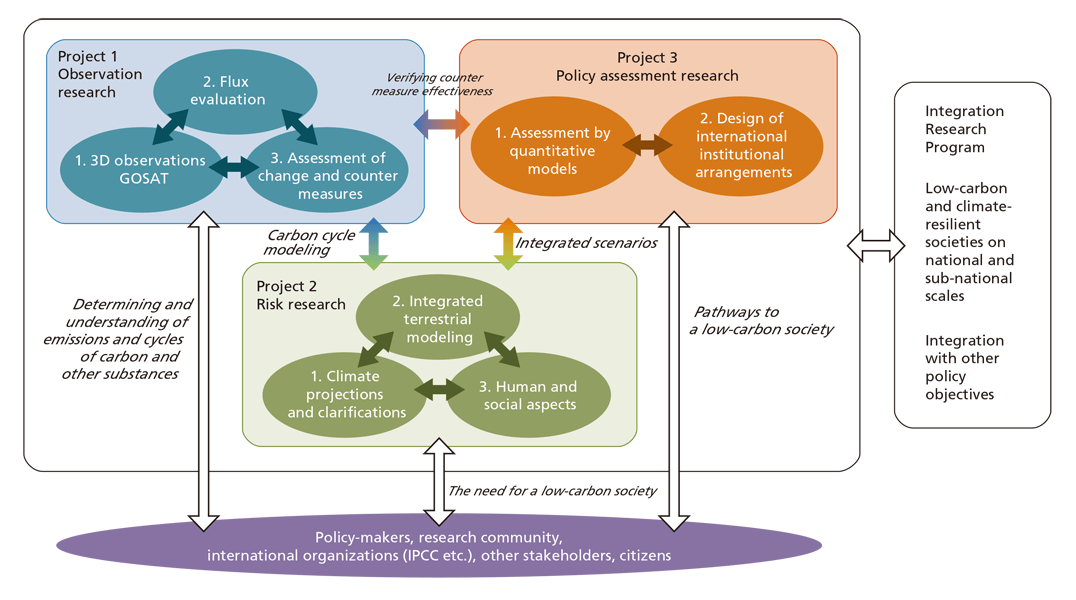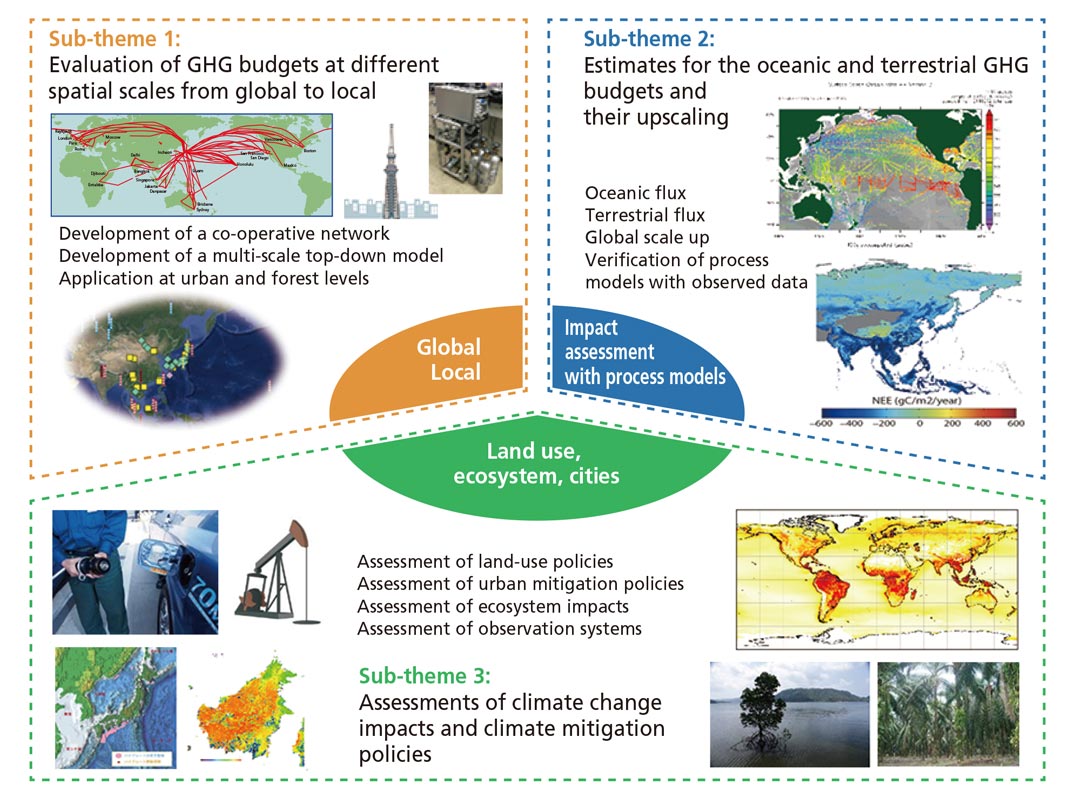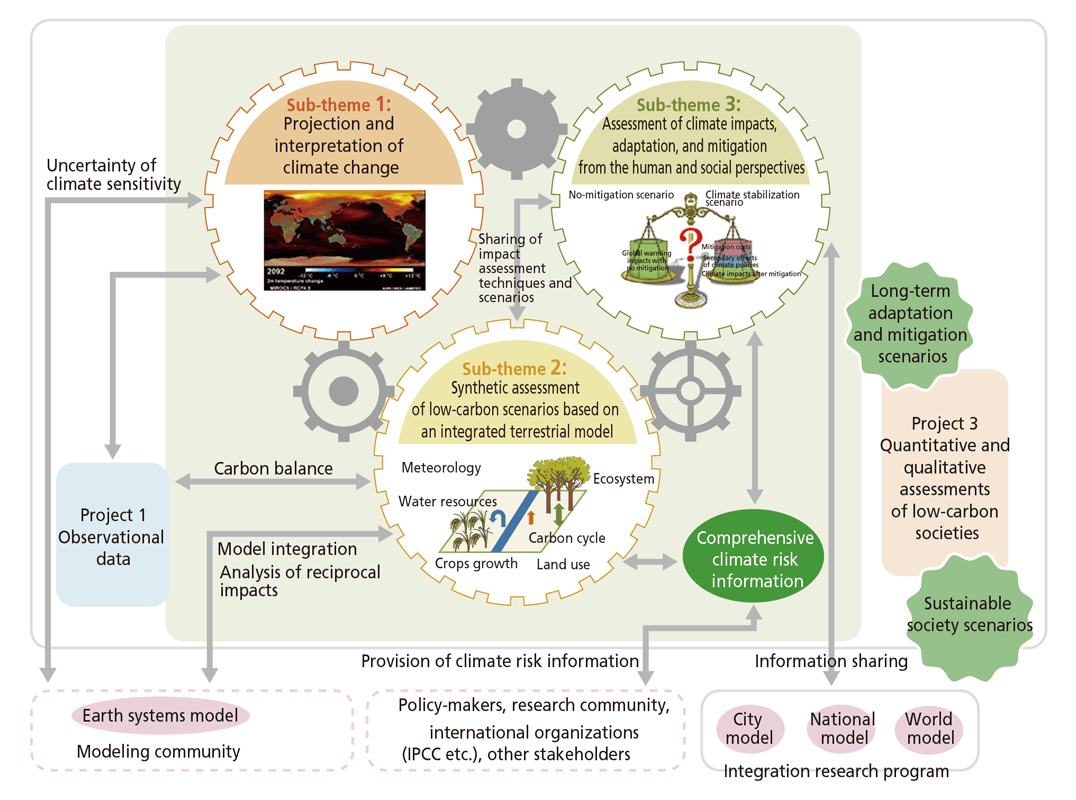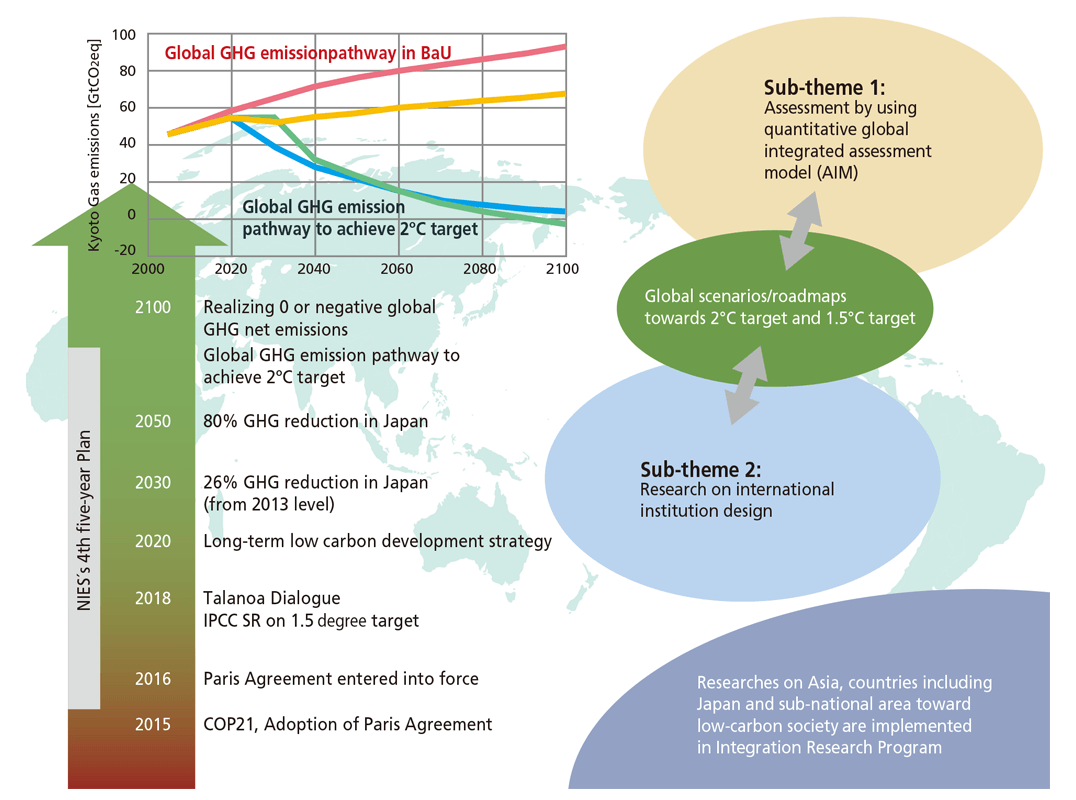Outline
In order to help achieve the internationally shared long-term vision, the so called 2°C reduction target, or at least the 1.5°C reduction commitment, we quantify in this research program GHG emission routes using scientific methods, and provide information which are necessary for preparing climate policies, such as global mitigation and adaptation policies, aiming at long-term reduction of GHG emissions.
By these activities we contribute to the implementation of a low-carbon society.
Project 1 Study on multi-scale evaluation system for GHG variation and mitigation
We are pursuing explanatory research on global phenomena including climate change feedbacks in order to elucidate the effects of global warming based on the latest scientific knowledge. Furthermore, to scientifically assess mitigation/adaptation policies and the impacts of anthropogenic emissions during the next 20 years with the 2°C reduction target in mind, we develop global and regional multi-scale observational systems of GHG concentrations around the world, and assess observations and models of flux change responses taking climate change impacts into account.
Project 2 Research on global climate risks based on integrated assessments of climate projections, impacts and policies
In this project, we create a comprehensive system of model research that better connects global climate projections (earth system models), human and terrestrial impact projections (integrated models of land use, water resources and ecosystems) and socio-economic scenarios and policy assessment (integrated assessment models). Based on this, we propose integrated climate risk scenarios that take into account the interrelationship between natural and human/social systems including the effects of countermeasures.
Project 3 Roadmap development and its empirical research towards the achievement of a global low-carbon society
We develop policy roadmaps and pathways to achieve the 2°C and 1.5°C targets of the Paris Agreement, and analyze their implementation toward a low-carbon society. For those purposes, we improve the global integrated assessment models, and based on the improved models, we assess climate mitigation policies and provide our results to international research projects. In addition, we design policies and international institutions towards climate stabilization. By providing knowledge and information obtained through our research to various stakeholders, we contribute to the establishment of a low-carbon society.







